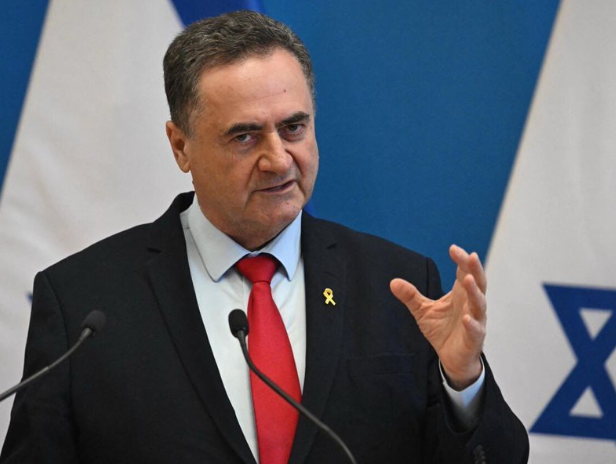Israeli Defense Minister Israel Katz has threatened Iran’s Supreme Leader Khamenei with personal consequences if Tehran continues to provoke Israel. His comments follow the recent 12-day Israel-Iran conflict and US airstrikes on Iranian nuclear sites. President Trump also warned Iran against nuclear ambitions, calling the regime “beaten up very badly.”
Israeli Defense Minister Katz Issues Grave Warning to Iran
In a dramatic escalation of rhetoric between Israel and Iran, Israeli Defense Minister Israel Katz has issued a direct and personal threat against Iran’s Supreme Leader, Ayatollah Ali Khamenei. Speaking from the Ramon Air Force Base in southern Israel, Katz warned that if Iran continues to threaten Israel, Tel Aviv would not hesitate to renew its military operations against Tehran—and this time, target the Iranian leader himself.
Katz’s statement came during a visit to the base where he addressed Israeli Air Force personnel who played a key role in the recent 12-day military operation, codenamed “Operation Rising Lion.” The defense minister praised the courage and effectiveness of the troops stationed at Ramon, especially the pilots who participated in strategic airstrikes during the conflict. According to Katz, the operation demonstrated the Israeli military’s capability to penetrate Iranian airspace and hit sensitive targets with precision. “The skies above Tehran were opened,” he declared proudly.
Issuing a direct message to Iran’s Supreme Leader, Katz said, “I want to send a clear message from here to the dictator Khamenei: If you continue to threaten Israel, our long hand will reach Tehran again with even greater force—and this time also to you personally. Do not threaten, or you will be harmed.” His remarks mark one of the most aggressive public threats issued by a senior Israeli official against the Iranian leadership in recent memory.

The latest statements from Katz come amid heightened tensions following last month’s bloody flare-up between Israel and Iran. The conflict erupted on June 13, when Israel initiated airstrikes on Iranian nuclear and military installations, citing threats to its national security. Tehran responded swiftly with missile and drone attacks targeting Israeli assets. In the midst of this escalation, the United States entered the fray, conducting precision bombings on three Iranian nuclear facilities.
The 12-day war culminated in a US-brokered ceasefire that went into effect on June 24. However, the ceasefire has done little to ease tensions, as both sides have remained verbally combative. The recent declarations by Katz suggest that Israel is prepared to abandon restraint if provoked further.
On the same day as Katz’s warning, US President Donald Trump also weighed in on the situation during a press interaction on the sidelines of his meeting with European Commission President Assuland Lion. Trump expressed surprise and dismay at Iran’s continued uranium enrichment efforts despite the American airstrikes. “When you get it down to a certain number, you’re going to be able to make a deal,” he said, indicating hope for diplomatic resolution but warning against further Iranian defiance.
Trump emphasized that Iran had been “beaten up very badly” in the recent conflict and reiterated his commitment to preventing Iran from acquiring nuclear weapons. “We cannot have them have a nuclear weapon,” Trump stated firmly. Reflecting on his past dealings with Iran, the president said, “Iran has been very nasty with their words. They got the hell knocked out of them, and I don’t think they know it.” In one of his more provocative remarks, Trump claimed that he knew the location of Iran’s Supreme Leader during the conflict but chose not to order a strike against him at that moment.
The intensifying war of words underscores the fragile nature of peace in the region. Katz’s threats have added a personal dimension to the ongoing hostility, suggesting that Israeli retaliation in the future could include targeted assassinations of high-ranking Iranian leaders. While Israel has long pursued covert operations against Iranian nuclear scientists and military assets, direct threats to assassinate the Supreme Leader mark a notable shift in tone.
With the US reaffirming its position as a close ally to Israel and maintaining a hardline stance on Iran’s nuclear ambitions, the geopolitical landscape in the Middle East remains volatile. Although a ceasefire is currently in place, statements from both Katz and Trump make it clear that any further provocation from Tehran could quickly unravel the fragile calm.
As the international community watches closely, the potential for another rapid escalation looms. For now, the world must contend with the possibility that a single threat—or a misstep—could reignite full-scale conflict between two of the region’s most formidable powers.
Disclaimer:
This article is based on current public statements and official sources as of July 2025. Geopolitical developments may evolve rapidly. The article aims to provide accurate information but should not be interpreted as endorsing any political stance or military action.

